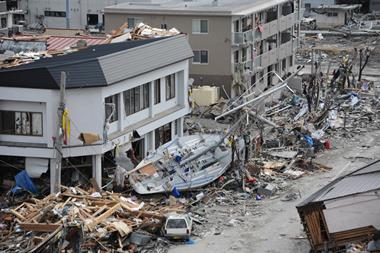Only 20 years ago, many enterprises managed risk through a combination of insurance, honesty and a health and safety policy. The realities of the twenty-first century require a much wider range of skills and competencies. Accordingly, the UK's professional risk management education body, the Institute of Risk Management (IRM), has redesigned the syllabus for its associateship diploma and will launch the new programme in September 2003.
The new style diploma is framed around the risk management standard, published in 2002 by the IRM, the Association of Insurance and Risk Managers (AIRMIC) and the National Forum for Risk Management in the Public Sector (ALARM). The standard sets a framework for organisations to ensure their financial, strategic, operational and hazard risks are effectively identified, evaluated and managed in a way that accepts that in all endeavour there is uncertainty and that scenario planning is paramount.
Like the standard, the core of the new syllabus recognises that a one-size-fits-all approach to risk management is not appropriate. The diploma, therefore, provides a framework which encompasses:
Today's risk managers need access to senior management at the highest level to ensure that a structured approach to risk issues truly becomes embedded. This in turn requires a new breed of risk manager, able to provide specific technical advice where required, but also able to influence and drive forward business change.
The new syllabus comprises a broad range of core skills modules covering both pure and speculative risk, coupled with a greatly enhanced range of optional specialist subjects reflecting the increasing diversity of the profession. The IRM is cooperating with specialist institutes in many of the specialist risk areas, either directly importing modules from these organisations' own qualification structures or developing new, shared material.
The IRM sees the future of risk management education very much as a co-operative enterprise. Risk management is too crucial to the competitiveness of UK plc and to the effectiveness of public bodies for effort to be squandered through overlap or duplication between organisations. The co-operation between the IRM, AIRMIC and ALARM to develop the risk management standard could be used as a metaphor for how risk managers can maximise their own effectiveness.
Developed with input from leading universities, business schools, employers and risk management practitioners themselves, the new syllabus balances the need for a broad framework education with the vocational requirements for specific skills in handing risk issues. New subjects will be phased in over three years, with the preliminary subjects, supported by new study texts, ready for those students who are enrolling this September.
The diploma is taken on a distance learning basis, with examinations available in 62 centres in more than 30 countries worldwide.
Life long learning
Mahatma Gandhi once said, "Live each day as if it were your last, but learn each day as if you were to live forever". The IRM has taken this message to heart. The Institute's mission focuses on the provision of relevant, quality, life-long learning. Qualified associates are encouraged to continue to develop their skills through to Fellowship, which they achieve through a combination of practical experience, further education and personal development, plus a real involvement in the IRM's activities.
Indeed, it is the active involvement of members that forms the life-blood of the IRM today. Involving real practitioners at centre stage in the development of the new diploma means that the education offered to tomorrow's risk leaders builds on the experiences and skills of today's risks managers and adds to them.
Today's IRM is very much a member-centric organisation. Indeed, as an educational provider this is our major strength. Members benefit from each other's skills and experiences through a series of local members' groups, special interest groups (again, many run in conjunction with other associations) and a series of keynote events.
Steve Fowler is executive director of the IRM.
www.theirm.org
Student Support
In designing the new programme, the IRM has listened carefully to feedback from its students. A comprehensive on-line student support package thus supports the new qualification. Students will also receive a detailed study guide covering full syllabus details, plus guidance on how, what, where and when to learn. IRM believes that, even in today's cyber-economy, face-to-face learning is important, so students will be so able to attend revision workshops throughout the year to support their home study.



















